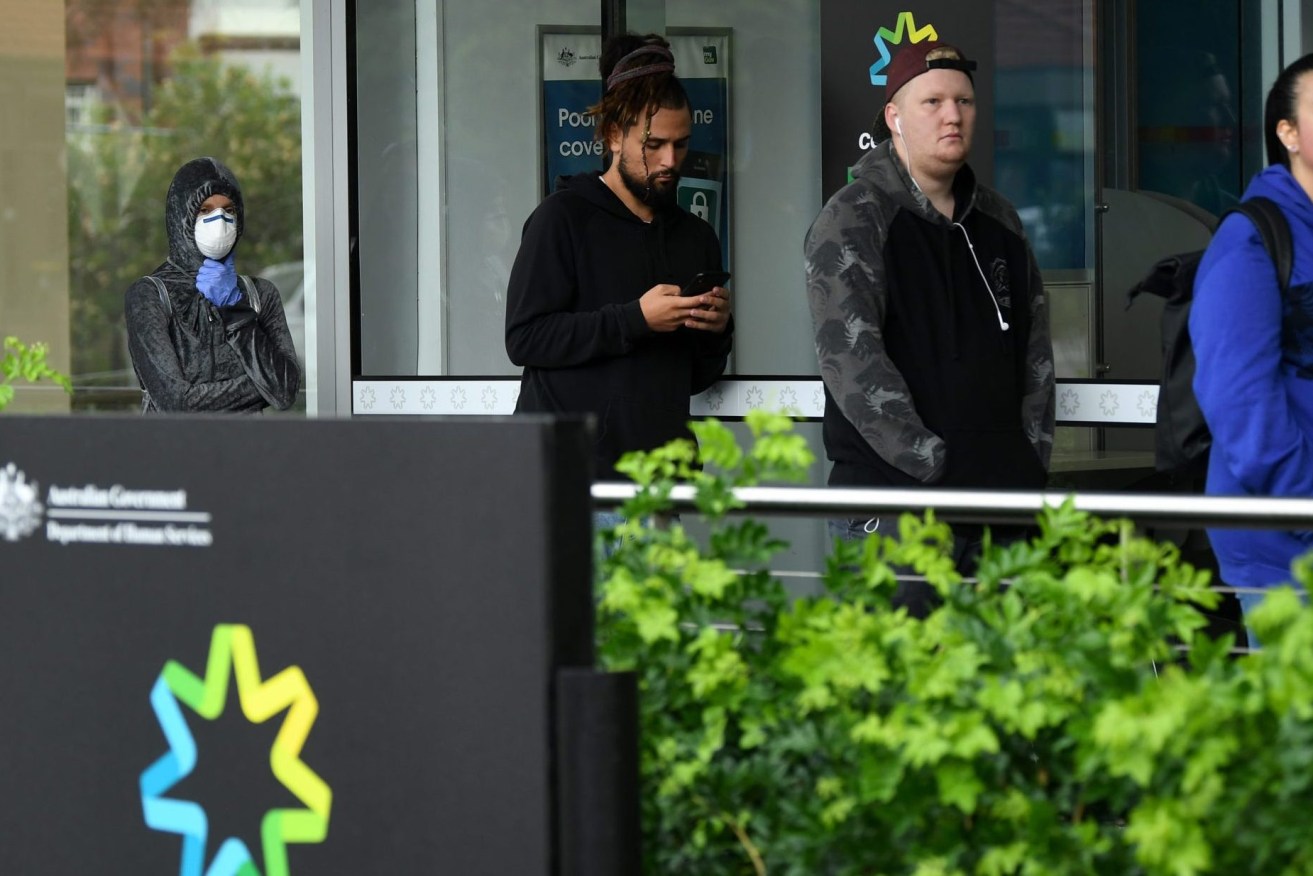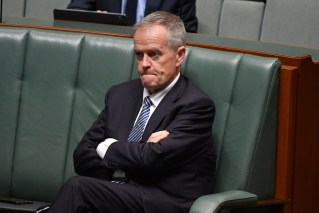Could paying people for doing nothing help solve our post-pandemic woes?
Support for a universal basic income is growing but does it make any sense and can we afford it? Robert MacDonald investigates.


Jobseekers over 55 will receive increased welfare payments (Photo: AAP Image/Joel Carrett)
Is a universal basic income the ultimate answer to our post-pandemic woes?
The idea of a regular payment from the state to its people, regardless of need and with no strings attached, has been around in various forms for decades, centuries in fact.
It might sound like a utopian’s pipe dream but it’s been gaining supporters across the ideological spectrum.
Tech billionaires, perhaps pricked by guilty consciences, think it’ll be needed for the time when robots take over our jobs.
Some small-government conservatives believe it makes sense to give people a basic income and let them look after themselves rather than having the state do it for them.
Many on the left see it as a logical mechanism for redistributing a country’s wealth.
And many in between see it as an idea worth exploring as a way to improve existing, often-complex and sometimes-demeaning social welfare payment systems.
The COVID-19 crisis and the sudden realisation that existing social safety nets are insufficient to carry an economy through extended periods of devastating job losses have added urgency to the debate.
Regardless of the growing support, it’s spectacularly easy for find objections to a basic income, not least, the cost.
Simon Cowan, Research Director at the Centre for Independent Studies, has calculated that if everyone in Australia over the age of 18 received the equivalent of the age pension the net annual cost would be more than $230 billion.
Even if you reduced the payment and retained some existing welfare programs, the additional costs would still be more than $100 billion according to Cowan’s calculations.
The Government collected $455 billion in taxes in 2018-19 and as Cowan notes, “there are no easy ways to raise another $100 billion in taxes each year.”
Others don’t see the funding issue as insurmountable, among them Melbourne University Law Professor and Fellow at the Australian National University’s Tax and Transfer Policy Institute Miranda Stewart.
Stewart co-authored an ANU research paper last year, “A basic income for Australia? Exploring rationale, design, distribution and cost”, which argues that a wealth tax of 1.5 or 2 per cent (along with tweaking of tax rates) could provide funding for a basic income.
Other suggested potential sources of revenue range from new taxes on multinationals, rich people, carbon and financial transactions to defence budget cuts and even, as Bill Gates has suggested, a tax on job-taking robots.
But, as Stewart acknowledges of her wealth tax idea, “proposing a wealth tax, is of course controversial. In particular, taxing the home and retirement savings would face very strong political opposition.”
And so would just about any other tax increase the Government could come up with.
No one likes paying taxes at the best of times but imagine the outcry from those being soaked for more to fund a no-strings-attached universal basic income, paid to everyone over the age of 18 – from drug addicts and layabouts to Gina Rinehart.
University of the Sunshine Coast and University of Queensland economics lecturer John Humphreys believes the funding problem could be solved by the private sector.
He and colleagues have examined the possibility of using blockchain technology to create a private-sector market in providing guaranteed minimum incomes.
Not a simple idea to capture in a few words but one he says could create a “welfare system based on personal income swaps coordinated through smart contracts” – and no government involvement.
But even if the government could come up with a relatively painless way to raise billions more, would a universal basic income be the best way to spend the windfall?
University of New South Wales Economics professor Gigi Foster argues that “instead of changing our present targeted welfare system into a diffuse scattergun money-for-all scheme, we could instead courageously tackle the worst part of the problem first.
“A proposal to throw money at people, while wrapping that proposal in the flags of “equality” and “basic rights”, can be argued to be the lazy man’s face-saving response to the complex, entrenched problems of poverty,” she says.
Funding and policy priorities aside, the more basic question is whether a universal basic income is even a good idea.
And that, Stewart and her co-authors note, will probably depend on your view of humankind.
“Essentially, the issue comes down to whether one has a pessimistic or optimistic view of human nature,” they write.
“If we are pessimistic, we may see that the universal income support provided by a basic income will cause increased workforce withdrawal, idleness and high tax rates.
“If we are optimistic, we will see the basic income as providing opportunities for humans to blossom – for example, to pursue artistic, learning or creative endeavours – and we might expect that most people will continue to work because they want to be part of society and gain satisfaction from work.”
Whatever your own perspective, if you’d like to know more about the still-developing debate about the universal basic income then go to the website of The Brisbane Dialogues, which describes itself as Australia’s first dedicated civil discourse organisation: brisbanedialogues.org
There you’ll find the details of an event at Brisbane’s Tivoli Theatre on the evening of July 20 – a public discussion on the topic of “Could Universal Basic Income Work in Australia?”
The experts quoted above – Simon Cowan, Miranda Stewart, Gigi Foster and John Humphreys – will be taking part and I’ll be moderating.
We hope to see you there.












